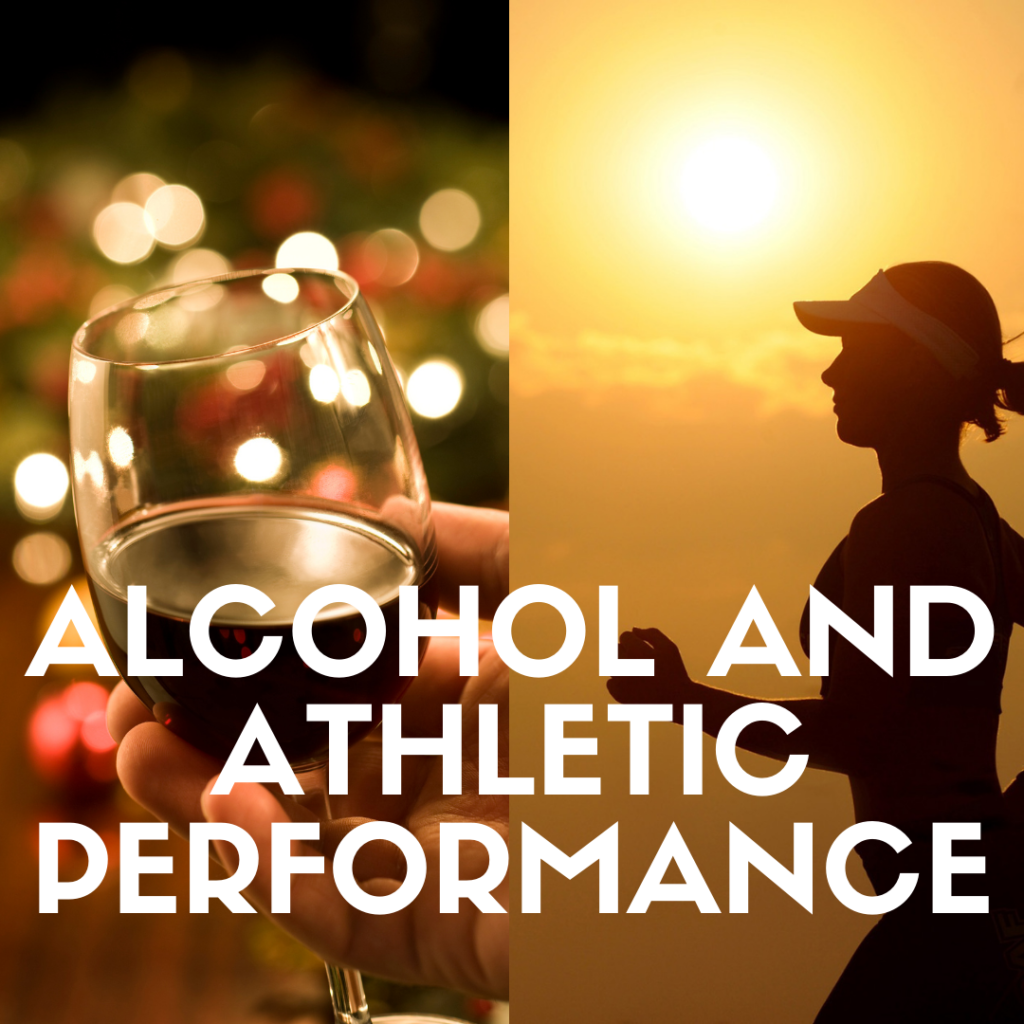Alcohol’s Impact on Athletic Performance
December 1, 2020
Maybe you’re getting into the holiday spirit. Maybe it’s part of the team culture. Alcohol can have a time and a place (21+), but if you are sipping on it consistently during your season, your performance and recovery is likely to decline.
Alcohol impairs athletic performance in a multitude of ways, and the effects can last to up to 72 hours past the night of drinking. And while the occasional beer or glass of wine typically won’t be the culprit of low performance, frequent bouts of “binge” drinking with friends or teammates has been found to decrease performance up to 11.4%
So, what is considered one drink? 12 oz. beer/cider, 5 oz. wine or 1.5 oz. distilled alcohol. The current guidelines for alcohol are ~1-2 drink/day, while > 4-5 drinks in one occasion is considered “binge” drinking.

Effects of Alcohol Intake on Performance
- Acts as a diuretic and impacts hydration/rehydration
- Impairs fine motor skills and reaction time
- Alcohol metabolism is prioritized over other macronutrients, reducing training capacity as well as carbohydrate repletion and muscle repair post-exercise
- Chronic use increases risk for nutrient deficiencies
- Interferes with deep, restful sleep leading to suppressed growth hormones and increased stress hormones
- Provides empty calories which are stored as fat in the body, which can lead to weight gain
At the end of the day, choices surrounding alcohol should be made based on three things. How will alcohol consumption:
- Affect your mental and physical health?
- Impact your individual athletic performance/goals?
- Impact your team performance/team goals?
Tips for Smart Sipping
Tip #1: Plan your night out based on when you are training next. Let your friends/teammates know of your goals and keep each other accountable.
Tip #2: Do not drink on an empty stomach. Enjoy a meal balanced in protein, fat and fiber prior to drinking. This will help to slow alcohol absorption and will better support recovery from training.
Tip #3: Go 1 for 1 with alcohol and non-alcoholic drinks (for every alcoholic drink you consume, have 1-2 non-alcoholic drinks in-between). This helps pace out your evening and keep you better hydrated.
Tip #4: Be mindful of mixers and your choice of drink. All alcoholic drinks have calories and can add up quickly. Lower calorie drink options may include: Vodka Soda (1.5 oz. vodka + sparkling water + citrus), Spiked Seltzer, Light Beer, Red or White Wine.
Need accountability this holiday season? Contact Caroline today!
References:
- Vella, L. D., & Cameron-Smith, D. (2010). Alcohol, athletic performance and recovery. Nutrients, 2(8), 781–789.
- O’Brien, C & Lyons, Frank. (2000). Alcohol and the Athlete. Sports medicine (Auckland, N.Z.). 29. 295-300.
- U.S. Department of Health and Human Services and U.S. Department of Agriculture. Dietary Guidelines for Americans 2015-2020 (8th Ed). Retrieved 2020 from https://health.gov/dietaryguidelines/2015/guidelines/.
Subscribe to our newsletter
Get seasonal recipes, new trends in food and fitness, and dietitian jokes. There’s no spam, and you can unsubscribe at any time.
